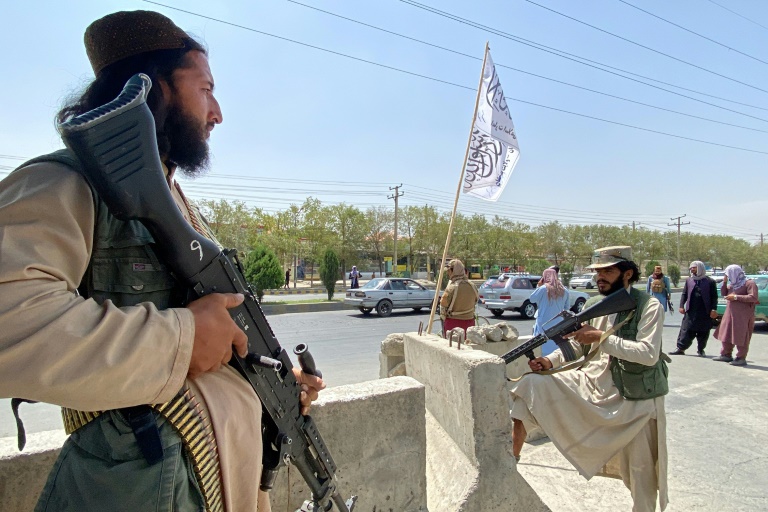The Taliban have tried to reassure fearful Afghans — and a wary international community — that this time around they will be “positively different”, but their reputation precedes them and few trust the group.
Here are five promises the Taliban have made — and their record on the issues:
– Women will have rights, but… –
The Taliban are “committed” to the rights of women, who will be able to work and study, the group’s spokesman Zabihullah Mujahid said Tuesday.
But he stressed at every mention of women that their rights will be determined by Islamic law.
That has always been interpreted by the Taliban’s ultra-conservative leadership.
The last time they were in power, from 1996 to 2001, they brutally suppressed women’s rights.
Girls were banned from going to school, and women were largely barred from public life — allowed out of the house only when covered head-to-toe in a burqa and accompanied by a male relative.
Women accused of violating these rules were given harsh punishments — including being stoned to death for adultery.
Even after they were toppled by US-led forces in 2001, women suffered similar restrictions in the areas under Taliban control. The militants have threatened and attacked women activists, journalists, MPs and even educators for two decades.
– Pardons for all? –
The Taliban have insisted that they have forgiven all that fought against them — including government officials, the police and the armed forces.
But many are sceptical because of their record with amnesty announcements, and tens of thousands of Afghans have tried to leave the country since the Taliban victory fearing reprisals.
During their first regime, Taliban fighters killed political opponents and also massacred civilians and religious minorities.
In recent months, the Taliban have been accused of murdering surrendering forces and civilians. The UN human rights chief said there were reports of possible war crimes.
– Security for embassies, foreign organisations –
The Taliban have tried quickly to reassure foreign governments and organisations that their embassies, offices and personnel are safe — one Russian diplomat said the situation was already better than under the previous administration.
The Taliban, however, have a poor record when it comes to protecting foreign personnel and missions.
In 1996, they entered a United Nations compound where former president Najibullah had been granted refuge, dragged him out to kill him and hang the body from a post.
And two years later, when they captured the northern city of Mazar-i-Sharif, they raided the Iranian consulate, killing nine diplomats and a journalist.
– No use of Afghan soil against other countries –
A core point of the troop withdrawal deal Washington signed with the Taliban last year was that they will not allow militant groups to operate out of Afghanistan.
US-led forces toppled the first Taliban regime because it had refused to give up Osama bin Laden and Al-Qaeda after the September 11, 2001 attacks.
The group has stressed that it is going to honour that commitment, reiterating after taking over that other nations will face no threats.
However, a UN Security Council monitoring report released in June said the Taliban and Al-Qaeda remain close.
– No more drugs –
The Taliban have promised that they will end the narcotics industry in Afghanistan, one of the world’s hubs for the production and trafficking of drugs such as heroin.
It may take some doing, especially if their new government does not have the same access to financial reserves and foreign aid that have sustained Afghanistan’s fragile economy for two decades.
And despite their claims to the contrary, UN monitors say the illicit drugs industry has been one of the biggest sources of revenue for the Taliban, bringing in hundreds of millions of dollars, according to estimates published last year.










